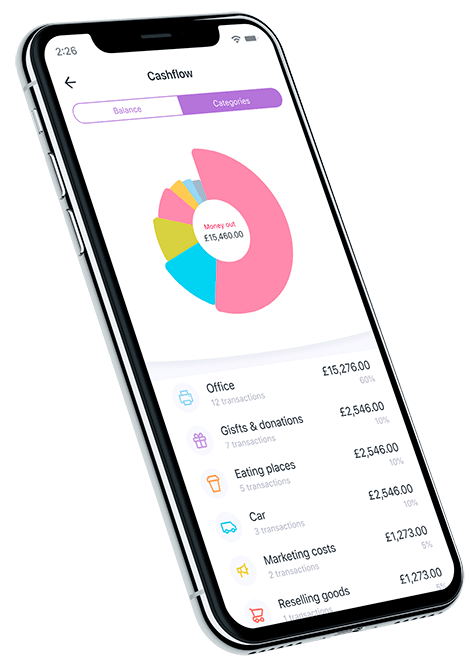Sole Trader vs Ltd Company - Which is best for you?

Are you looking to start a business on your own, but not sure how to set one up?
Every business, no matter how big or small needs a structure. Typically, small businesses operate either as a sole trader or a limited company, with some contractors preferring to choose an umbrella company for payroll purposes. In this article, we’ll look at what it’s like to run a business as a sole trader or a limited company. Which you choose will depend on factors like the turnover of your business or how much income you bring in from other sources.

Setting up as a sole trader
What is a sole trader?
A sole trader is a self-employed person who is responsible for running all aspects of a business, including declaring the income received from the business and paying the appropriate taxes. When you operate your business as a sole trader, you are responsible for its success or failure – and also for any debts.
Register as a sole trader
The main reason why so many owners of small businesses set up as sole traders is because it’s so straightforward. Setting up as a sole trader is easy on the gov.uk website. If you’ve recently started a small business and are looking to operate as a sole trader, you should register with HMRC as soon as possible, or by 5th October in your second year of trading at the latest.
Advantages and disadvantages of setting up as a sole trader
|
Advantages |
Disadvantages |
|
Easy and free to set up compared to a ltd company – there is no requirement to register at companies house. |
Unlimited liability – a sole trader and the business is seen as the same entity, so a sole trader is personally responsible for any debts in your business. If the business goes bankrupt your personal assets are at risk of repossession. |
|
Financial information about the business is not publically available for anyone to view. |
It might be difficult to obtain loans for the business as it may be seen as riskier than a limited company. |
|
Easier to make decisions as you’re the owner, so you don’t need to consult with anyone else before making any business decisions. |
There can be a lot of pressure to make business decisions on your own, which may lead to poor choices. |
|
Any profits your business makes are yours to keep. There is no tax payable on drawing money from the business as the business is not a separate legal entity. |
A sole trader may not be the most tax-efficient form of business structure. A sole trader has less flexibility to reduce their tax liability legally. |

Setting up a limited company
What is a ltd company?
A ltd company is a business structure where the company is registered at companies house as a separate legal entity and is therefore completely separate from its owners. One of the biggest differences between a ltd company and a sole trader is that you will not be personally responsible for the losses of your business - if the company goes into liquidation, your personal assets are not at risk of repossession.
How to set up a limited company
Check out the following links on how to set up a ltd company:
A ltd company brings its own legal responsibilities for the shareholder and the director such as:
- making sure accurate accounting records are kept
- submitting accurate and filing them on time with companies house
- agreeing that your director details be available on the companies house website;
- agreeing that as a Private Limited Company you will have your accounts published to view by anyone on the companies house website
What is the difference between private and public limited companies
- Both private and public limited companies are owned by shareholders who invest in the company.
- A private limited company only needs one shareholder who may also be the company director. The requirements for a private limited company are much less formal, with no specific requirements for a company secretary, director or shareholder.
- A private limited company cannot put up shares for public sale, unlike a public limited company which may offer shares for sale to the public if it wishes to. A public limited company has to have two company directors as a minimum.
- Accounts for a public limited company have to be submitted within six months following its accounting year-end. A private limited company can submit accounts up to nine months after the accounting year-end.
- Once a private limited company has been incorporated it can start trading, but a public limited company has to wait for a trading certificate first.
Advantages and disadvantages of setting up a ltd company
Which is the more tax-efficient business structure?
This is the question asked by most small business owners. Whether you set your business up as a sole trader or a ltd company depends on how much profits your business is making and how much your income you generate from other sources such as employment, or property letting, for example.
If you set your business up as a sole trader and your taxable profits (revenue less allowable expenses) are under £12,500, you will not have to pay any income tax on profits under £12,500 as this will be covered by the personal allowance limit of £12,500 (as long as income from self-employment is your only source of income). You will, however, have to pay Class 2 and Class 4 National insurance.
If you have other sources of income such as income from dividends, employment, property (depending on how much your income is from other sources), you may want to think about setting up a ltd company. Income from all your sources, including self-employment, will be totalled to calculate your tax liability. If your total income from all sources is higher than £50,000, you will be subject to the higher rates of income tax.
If you set up a ltd company, all profits made in a year will be subject to corporation tax at around 19% (this changes reasonably often). Most limited company directors take money out from their companies by a combination of a salary and dividends. When you take money out in the form of dividends over £2,000, you will have to pay tax on this. The rate of tax you pay will depend on which tax bracket you fall under.
The advantage that you have as a ltd company director compared to a sole trader is that you should be able to retain profits in your ltd company and use it to reinvest in your business or be able to withdraw it at some point in the future in the form of dividends.
Comparison of some of the key differences between a ltd company and a sole trader
| Sole trader | Ltd company | |
| Liability | Unlimited liability. If the company was to go bankrupt, the owner’s personal assets are at risk of possession, and the owner can be personally sued if there is a legal dispute. | Limited only to the value of its assets, so if the company was to go bankrupt, the director’s personal assets are not at risk of possession. |
| Tax on profits | Sole traders are liable to pay personal income tax plus class 2 and 4 NI as well. Sole traders may be subject to the higher rates of income tax depending on their other income | A ltd company will be liable to pay corporation tax of 19%, which may be lower than personal income tax rates. |
| Ownership | The sole trader is the owner of the business, and they are business. | The business is a separate legal entity based on the percentage share ownership in the company. |
| Drawing profits from the business | Anytime without any extra tax liability. | Ltd company directors will have to pay income and dividend tax if they want to draw money from the business. |
| Borrowing money from the business | As a sole trader, you are the business, so the business money belongs to you, and you are free to borrow money from the business. | As a ltd company director, if you ever had to borrow money from your company, you can borrow it, but if you don’t pay it back within nine months of the end of your corporation tax accounting period, you may have to pay extra corporation tax. |
| Preparation of accounts | There is no legal requirement to prepare financial statements, but doing so may help you to keep track of the finances of your company. Depending on your turnover, you can choose to do cash accounting or traditional accruals accounting. | All ltd companies have to prepare and file accounts that comply with accounting standards. Although smaller companies (micro-companies) may be able to file abbreviated accounts. Ltd companies can only use the traditional accruals accounting method. |
| Privacy of company information | Financial records and other company details of the business are kept private and are not available for the public to view. | Director’s details, company financial information, company registered address, will be available by anyone to see on the companies house website. |
| Sale of the business | The business is a personal asset of the owner so that it would be subject to capital gains tax. | The company would pay corporation tax on the “profit” it makes from the sale, and if those profits were to be distributed from the company to the directors, the directors would have to pay tax on dividends drawn from the company. |
Remember to keep your receipts!
Whether you set up as a sole trader or a limited company, remember to claim all the expenses incurred by your business! The more allowable expenses you have, the less tax you will have to pay, as these allowable expenses will reduce your taxable profits. One very simple way to keep a record of your business expenses is to use Amaiz business banking. With Amaiz you can see all your spending in the app, categorised by type, which means you’ve got everything in easy reach when it comes to Self Assessment.
If you have any further questions regarding ltd companies or sole traders or anything else, we’re here to help. You can reach us online at Amaiz Web or in the app. Just sign up with a free trial to see how our app features suit your business.

Download now!
And you can open a business account with all the support you need in minutes.




